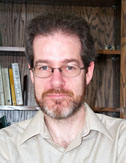|

Comment
on this story
|
 |

Gone, but unfortunately not forgotten
by Massimo Pigliucci
Physicist Edward Teller has moved on, as the ancient Romans used to say, to the Elysian Fields. Good riddance, I say, paraphrasing George W. Bush's comment in another context. Which is ironic, because obviously Bush thought highly enough of Teller to accord him the Presidential Medal of Freedom in 2003, the highest civilian honor in the United States.
Famously of a different opinion was physicist Nobel laureate Isidor Rabi, who remarked that the world would have been a better place without Teller. E. Teller was a real-life Dr. Strangelove (of "how I learned to stop worrying and love the bomb" memory), the immortal character played by Peter Sellers in the film directed by Stanley Kubrick in 1964. (A Google search revealed that there are three primary suspects for being the inspiration for Strangelove: Henry Kissinger, Werner von Braun, and Edward Teller—I vote for a nicely split award).
Perhaps Teller's most outspoken critic was Carl Sagan, who wrote a poignant essay on Teller-Strangelove entitled "When Scientists Know Sin" (republished in his The Demon-Haunted World: Science as a Candle in the Dark). Sagan met Teller several times, both in private and in public debate, and—as a physicist himself—was in a primary position to evaluate not only Teller's technical work, but also how accurately he portrayed it to the public and to politicians like Ronald Reagan. Sagan reminds us of Teller's advocacy of all sorts of "civilian" uses for the H-bomb (which Teller helped develop and aggressively advocated): from scientific experiments (let's explode one on the moon to analyze the resulting gas and dust and see what our satellite is made of), to—believe it or not—construction projects (e.g., to eliminate mountains that may get in the way of roads or dams).
Sagan's take on it is that perhaps Teller was desperately trying to justify to the world his life-long work in nuclear weapons development, truly an attempt to make all of us "love the bomb" (and, by reflection, its chief inventor and advocate). There are also plenty of personal circumstances that help explain Teller's hawkishness, like the fact that when he was young the communists confiscated his family's property in his native Hungary. That he lost a leg as a result of a streetcar accident, and was in permanent pain throughout the rest of his long life, probably didn't help to soften Teller's character either.
Be that as it may, Teller took advantage of McCarthyism and the paranoia that swept the United States during the first phases of the Cold War, to attack his colleague Robert Oppenheimer (who coordinated the Manhattan Project that had led to the development of the atomic bomb) for being too soft as well as disloyal to the United States. Oppenheimer's crime, in Teller's eyes, was his critical stance on the further development and use of weapons of mass destruction, though Oppenheimer was joined in his campaign by many leading scientific figures of the time, most famously Albert Einstein.
Teller's academic life was also rather controversial. While he was called the "father" of the H-bomb, there is good reason to believe that his original idea was flawed and would not have worked without substantial revisions carried out by many people working under him. When Sagan and other scientists discovered the possibility of a "nuclear winter" following the launch of a thermo-nuclear attack (even without retaliation), Teller both claimed that the science underlying the nuclear winter scenario was flawed and that he had discovered the possibility several years earlier but did not alert the public or politicians about it.
Now, what sort of monster can stumble on a discovery that could very well annihilate humankind, or at the very least cause the death and suffering of hundreds of millions of people, and make the unilateral and private decision to not share such discovery with the rest of the world? The sheer arrogance of such an attitude is hard to comprehend, although it would fit very well with the current administration's policy of secrecy and military aggression (it may not be a coincidence that one of the many good things President Clinton did not do was to award Teller the Presidential Medal of Freedom).
In Kubrick's movie, in response to President Merkin Muffley's (also played by Sellers) question about why the "Doomsday Machine" can be automatically triggered, but not manually intrigued, Strangelove answers with perfect ill-logic: "Mr. President, it is not only possible, it is essential. That is the whole idea of this machine, you know. Deterrence is the art of producing in the mind of the enemy the fear to attack. And so, because of the automated and irrevocable decision-making process, which rules out human meddling, the doomsday machine is terrifying. It's simple to understand. And completely credible, and convincing."
That is the sort of 'reasoning' that Teller advocated in real life, and which brought us the hydrogen bomb and Star Wars (not the movie). Teller is finally now gone, but his twisted logic is still endorsed by the hawks currently usurping the White House, and the War Room is as busy as ever. It is most urgent that each one of us contribute to write a different finale to this movie than the apocalyptic one Kubrick chose for his fictional version.
Massimo Pigliucci's ramblings can be found at www.rationalists.org.

November 13, 2003 * Vol. 13, No. 46
© 2003 Metro Pulse
|





